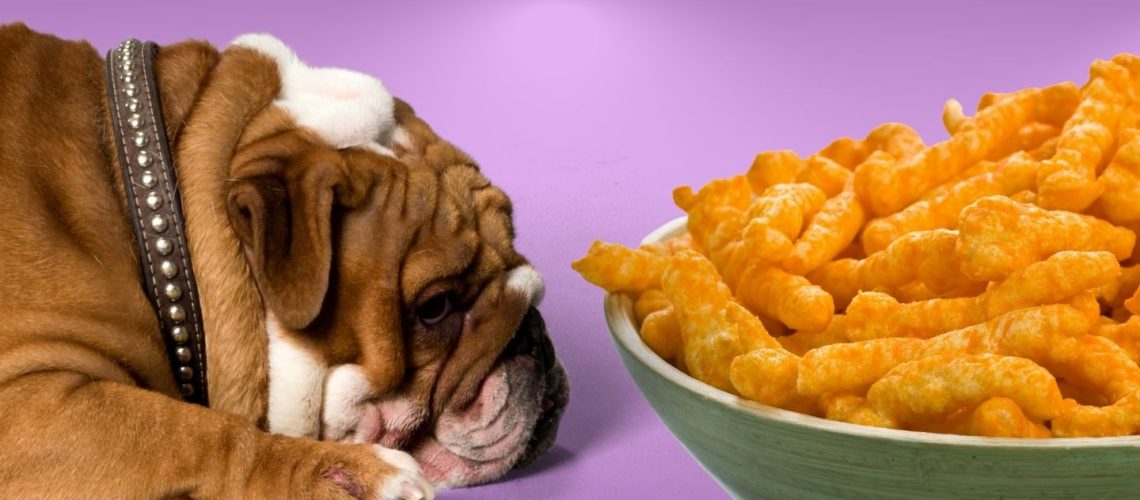The short answer is no, dogs should not eat Cheetos. Although they are not toxic to dogs, they are not suitable for their consumption due to high fat and salt content as well as the cheese flavoring that can be difficult to digest. It is important to prevent dogs from accidentally eating them, and if they do, monitor them for any adverse symptoms.
Introduction
Brief Overview of Cheetos
Cheetos is a popular snack enjoyed by many, known for its cheesy and crunchy texture. Its main ingredients include cornmeal, vegetable oil, cheese powder, and salt. However, Cheetos also contain artificial flavorings and preservatives, which may not be suitable for your dog's consumption.
Dogs' Dietary Requirements
A healthy diet for dogs consists of a balance of proteins, carbohydrates, fats, vitamins, and minerals. Dogs require proper nutrition to maintain their energy levels, support growth, and ensure overall well-being. While some human foods can be safe for dogs to eat in moderation, many snacks, like Cheetos, do not meet their dietary needs.
Health Risks Associated with Dogs Consuming Cheetos
High Fat Content
Excessive fat intake can lead to obesity, pancreatitis, and other health issues in dogs. The high fat content in Cheetos can contribute to an unhealthy amount of fat in your dog's diet, which can lead to long-term health concerns.
High Salt Content
High sodium intake for dogs can be dangerous as it can lead to dehydration and salt poisoning. The salt content in Cheetos is far too high for a dog's dietary needs, and could pose a risk if consumed in large quantities.
Artificial Flavorings and Preservatives
The artificial ingredients found in Cheetos can lead to digestive issues and allergies in dogs. These additives may not agree with your dog's stomach, and can cause unnecessary discomfort.
Potential Health Issues for Dogs Eating Cheetos
Gastrointestinal Issues
Cheetos can cause stomach upset, vomiting, and diarrhea in dogs due to the high fat and artificial ingredients. If your dog consumes Cheetos, it is possible for them to experience gastrointestinal discomfort.
Allergic Reactions
Dogs can have allergic reactions to the artificial ingredients in Cheetos, leading to skin irritations or more serious, life-threatening reactions. It is crucial to monitor your dog for any signs of an allergic reaction, such as swelling or difficulty breathing.
Long-term Health Effects
The potential long-term health consequences of dogs regularly consuming Cheetos include obesity, heart problems, and pancreatitis. These conditions can negatively impact your dog's overall quality of life, and should be avoided by providing a balanced and healthy diet.
Tips for Preventing Dogs from Eating Cheetos
Proper Storage
Always store Cheetos or other snacks out of your dog's reach, in high cupboards or sealed containers.
Supervision
When enjoying Cheetos or other human foods, supervise your dog to ensure they don't snatch any dropped pieces or sneak a taste from the bag.
Alternative Dog-Friendly Snacks
Offer healthier, dog-friendly snack options, such as carrot sticks or dog-specific treats, to keep your pet satisfied and safe from harmful foods.
What to Do if Your Dog Eats Cheetos
Assessing the Situation
Determine the amount of Cheetos consumed and the potential risk to your dog. A small amount may not cause significant harm, but consuming a large quantity warrants concern.
Monitoring Your Dog
Watch for signs of gastrointestinal distress, such as vomiting, diarrhea, or abdominal pain, as well as any signs of an allergic reaction.
When to Contact a Veterinarian
If your dog consumes a large amount of Cheetos, displays severe symptoms, or their condition worsens, contact your veterinarian immediately for advice and potential treatment options.
Final Thoughts
Keeping Cheetos away from dogs and providing them with a healthy, balanced diet is essential in maintaining their overall well-being. Always monitor your dog around human foods, and offer dog-friendly alternatives to ensure their safety and health. If your dog does consume Cheetos, watch for any adverse symptoms and contact your veterinarian as necessary.










